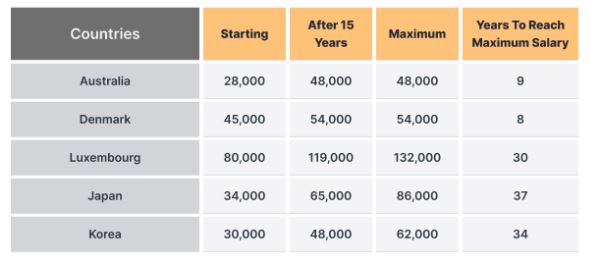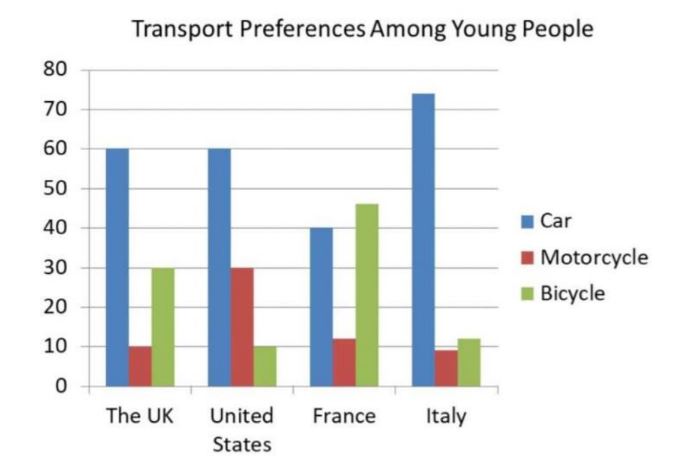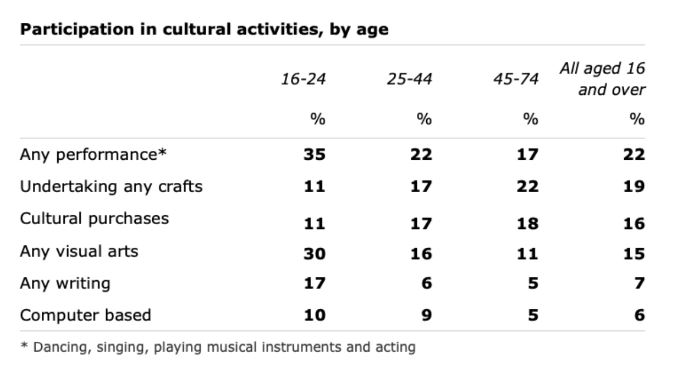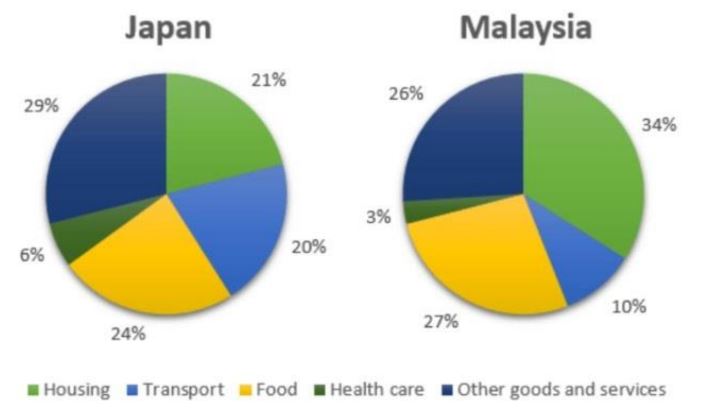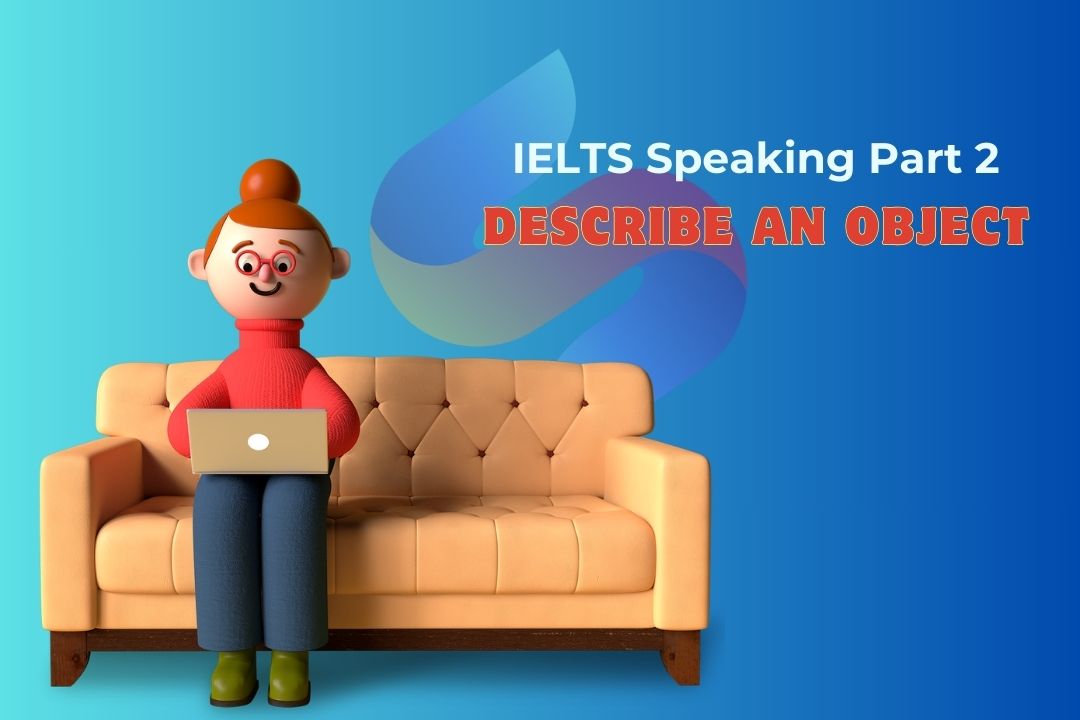Cấu trúc câu trong tiếng Anh là gì? Làm sao để diễn đạt ý trong tiếng Anh một cách đúng ngữ pháp và đủ ý? Các mẫu cấu trúc câu thông dụng trong tiếng Anh và bí quyết nhớ trên 5 đầu ngón tay. Cùng Smartcom English tìm hiểu qua bài viết dưới đây!
Cấu trúc câu trong tiếng Anh là gì?
Cấu trúc câu trong tiếng Anh là cách mà các từ, cụm từ, và mệnh đề được sắp xếp với nhau để tạo thành một câu hoàn chỉnh. Cấu trúc này rất quan trọng vì nó quyết định cách diễn đạt ý nghĩa của câu và làm cho thông điệp trở nên rõ ràng và dễ hiểu. Dưới đây là các yếu tố cơ bản của cấu trúc câu trong tiếng Anh:
Thành phần chính của câu S-V-O-C-A tuân thủ nguyên tắc 5 ngón tay – đã được liệt kê trong cuốn sách “Tiếng Anh trên Đầu 5 ngón tay” do thầy Nguyễn Anh Đức (Chủ tịch HĐQT Smartcom English) chủ biên.
– Chủ ngữ (Subject): Người hoặc vật thực hiện hành động trong câu. Ví dụ: She, The dog, John.
– Động từ (Verb): Hành động hoặc trạng thái của chủ ngữ. Ví dụ: runs, is, read.
– Tân ngữ (Object): Đối tượng của hành động. Ví dụ: the book, him, the cake.
– Bổ ngữ (Complement): Thông tin bổ sung về chủ ngữ hoặc tân ngữ. Ví dụ: happy, a teacher, tired.
– Trạng ngữ (Adverbial): Thông tin bổ sung về hành động, bao gồm nơi chốn, thời gian, cách thức, v.v. Ví dụ: quickly, yesterday, at the park.
Trên đây là liệt kê các thành tố cơ bản của câu, tuy nhiên cách ghi nhớ các thành phần chính trong câu theo phương pháp lập luận tư duy sau đây sẽ dễ dàng hơn cho các bạn:

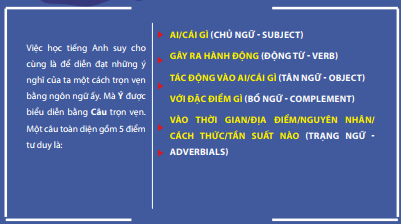
Các cấu trúc câu trong tiếng Anh
1. Cấu trúc câu cơ bản – bao gồm 1 câu đơn hay còn gọi là mệnh đề độc lập theo công thức tối thiểu S+ V (+O)
Câu tiếng Anh có thể được phân loại thành các loại chính dựa trên cấu trúc của chúng:
- Câu khẳng định (Declarative Sentences): Diễn đạt một thông tin hoặc sự thật.
- Ví dụ: I love studying English.
- Câu phủ định (Negative Sentences): Diễn đạt một thông tin không đúng hoặc không có thật.
- Ví dụ: She does not like coffee.
- Câu nghi vấn (Interrogative Sentences): Dùng để đặt câu hỏi.
- Ví dụ: Do you speak French?
- Câu mệnh lệnh (Imperative Sentences): Đưa ra lệnh, yêu cầu hoặc lời khuyên.
- Ví dụ: Please close the door.
2. Cấu trúc câu phức tạp – thường gồm các mệnh đề được ghép lại với nhau
- Câu ghép (Compound Sentences): Kết hợp hai hoặc nhiều câu đơn – mệnh đề độc lập với nhau bằng các liên từ như and, but, or.
- Ví dụ: I wanted to go for a walk, but it started to rain.
- Câu phức (Complex Sentences): Bao gồm một mệnh đề chính và một hoặc nhiều mệnh đề phụ.
- Ví dụ: Although it was raining, we decided to go for a walk.
3. Cấu trúc câu tiếng Anh với câu phức:
Ở đây chúng ta sẽ lưu ý kỹ hơn về khái niệm Mệnh đề phụ thuộc – nó không diễn đạt một ý hoàn thiện và không thể đứng một mình để tạo ra một câu. Mệnh đề phụ thuộc được hình thành bởi một liên từ phụ thuộc như when, while, if, because… rồi cộng với chủ ngữ và động từ, và phải ghép vào các vế câu khác để tạo một câu hoàn chỉnh.
Ví dụ mệnh đề phụ thuộc:
- …when economic stability attracts foreign investment…(…khi sự ổn định kinh tế thu hút đầu tư nước ngoài…)
- …while online education offers flexibility to learners… (…mặc dù giáo dục trực tuyến mang lại sự linh hoạt cho người học…)
- …If public health policies are evidence-based…(…nếu các chính sách y tế công cộng dựa trên bằng chứng…)
Ví dụ câu hoàn chỉnh:
- Although it was raining, we decided to go for a walk.
- We decided to go for a walk because it stopped raining.
- Since it was her birthday, we threw her a surprise party.
Mẫu cấu trúc câu thông dụng
Định nghĩa: Diễn tả thói quen hoặc trạng thái trong quá khứ mà bây giờ không còn nữa.
Cách dùng: S + used to + V-infinitive
Ví dụ:
- I used to play soccer every weekend when I was a child.
(Tôi đã từng chơi bóng đá mỗi cuối tuần khi tôi còn nhỏ.)
Định nghĩa: Diễn tả sự quen thuộc với một thói quen, trạng thái, hoặc điều gì đó trong hiện tại.
Cách dùng:
- Be used to: S + am/is/are + used to + V-ing/noun
- Get used to: S + get + used to + V-ing/noun
Ví dụ:
- I am used to waking up early for work.
(Tôi đã quen với việc dậy sớm để đi làm.) - She is getting used to living in a big city.
(Cô ấy đang quen với việc sống ở thành phố lớn.)
Định nghĩa: Diễn tả một điều gì đó quá mức (không tốt) đối với ai đó để thực hiện hành động nào đó.
Cách dùng: S + V + too + adj/adv + (for someone) + to do something
Ví dụ:
- The soup is too hot for me to eat.
(Súp quá nóng để tôi ăn.)
Định nghĩa: Diễn tả hành động ngăn chặn ai đó hoặc cái gì đó thực hiện một hành động cụ thể.
Cách dùng: To prevent/stop + someone/something + from + V-ing
Ví dụ:
- They took measures to prevent the children from playing in the street.
(Họ đã thực hiện biện pháp để ngăn trẻ em chơi ở đường.)
Định nghĩa: Diễn tả nguyên nhân hoặc lý do cho hành động hoặc tình huống.
Cách dùng: S + V + because + S + V
Ví dụ:
- She was late because she missed the bus.
(Cô ấy đến muộn vì cô ấy đã lỡ xe buýt.)
Định nghĩa: Diễn tả nguyên nhân hoặc lý do cho hành động hoặc tình huống nhưng sử dụng danh từ hoặc cụm danh từ.
Cách dùng: S + V + because of + noun/gerund/noun phrase
Ví dụ:
- He canceled the picnic because of the rain.
(Anh ấy đã hủy buổi dã ngoại vì cơn mưa.)
Định nghĩa: Diễn tả sự ưa thích hoặc ưu tiên một điều gì đó hơn điều khác.
Cách dùng: To prefer + noun/gerund + to + noun/gerund
Ví dụ:
- I prefer reading books to watching TV.
(Tôi thích đọc sách hơn là xem TV.)
Định nghĩa: Diễn tả cảm xúc của một người đối với một điều gì đó cụ thể.
Cách dùng: To be amazed/surprised/angry/good/bad + at + noun/gerund
Ví dụ:
- She was amazed at his ability to solve complex problems.
(Cô ấy đã ngạc nhiên trước khả năng giải quyết các vấn đề phức tạp của anh ấy.)
Định nghĩa: Diễn tả số tiền hoặc thời gian được sử dụng cho một hoạt động hoặc mục đích cụ thể.
Cách dùng: To spend + amount of time/money + on + something
Ví dụ:
- They spent two hours on the project.
(Họ đã dành hai giờ cho dự án.) - She spent a lot of money on clothes.
(Cô ấy đã tiêu rất nhiều tiền cho quần áo.)
Định nghĩa: Diễn tả một kết quả hoặc hiệu ứng nào đó do một tình huống hoặc đặc điểm nào đó.
Cách dùng: So + adj/adv + that + S + V
Ví dụ:
- She is so talented that she won the competition easily.
(Cô ấy tài năng đến nỗi đã thắng cuộc thi một cách dễ dàng.)
Định nghĩa: Diễn tả một sự việc hoặc tình huống đến mức nó tạo ra một kết quả hoặc tình huống khác.
Cách dùng: Such + (a/an) + adj + noun + that + S + V
Ví dụ:
- It was such a beautiful day that we decided to go for a picnic.
(Đó là một ngày đẹp đến nỗi chúng tôi quyết định đi dã ngoại.)
Định nghĩa: Diễn tả một điều gì đó quá mức (không tốt) để thực hiện một hành động.
Cách dùng: Too + adj/adv + to + V (base form)
Ví dụ:
- The box is too heavy to lift.
(Cái hộp quá nặng để nâng lên.)
Định nghĩa: Diễn tả sự đầy đủ hoặc đáp ứng đủ điều kiện để thực hiện một hành động.
Cách dùng: adj/adv + enough + to + V (base form) / noun
Ví dụ:
- She is smart enough to solve this problem.
(Cô ấy đủ thông minh để giải quyết vấn đề này.) - There are enough chairs for everyone.
(Có đủ ghế cho mọi người.)
Ngoài ra còn rất nhiều những mẫu câu khác, chúng ta sẽ cùng tìm hiểu sâu hơn ở các chủ điểm ngữ pháp khác nhé.
Bài tập áp dụng
Phần 1: Điền từ phù hợp vào chỗ trống
- She was __________ (so/such) tired __________ she fell asleep during the movie.
- He is __________ (too/enough) young __________ drive a car.
- It was __________ (such/too) a great experience __________ I will never forget it.
- I didn’t have __________ (enough/too) time __________ finish my homework.
- The weather was __________ (so/such) nice __________ we decided to go for a walk.
Phần 2: Chuyển đổi câu
- “If I had a million dollars, I would travel around the world,” he said. (Chuyển sang câu tường thuật)
- “Would you like some coffee?” she asked. (Chuyển sang câu tường thuật)
- “I have finished my project,” she said. (Chuyển sang câu tường thuật)
- “Be careful! The ground is slippery,” the teacher warned. (Chuyển sang câu tường thuật)
- “If I were you, I would apologize,” she said to him. (Chuyển sang câu tường thuật)
Phần 3: Viết lại câu
- They were happy. They won the game. (Sử dụng “because” để kết hợp thành một câu)
- The test was difficult. I couldn’t complete it. (Sử dụng “too” để viết lại câu)
- You have to finish your work. (Viết lại bằng cách sử dụng “need”)
- I don’t like ice cream. I like coffee. (Viết lại bằng cách sử dụng “prefer”)
Đáp Án
Phần 1: Điền từ phù hợp vào chỗ trống
- so; that
- too; to
- such; that
- enough; to
- so; that
Phần 2: Chuyển đổi câu
- He said that if he had a million dollars, he would travel around the world.
- She asked if I would like some coffee.
- She said that she had finished her project.
- The teacher warned me to be careful because the ground was slippery.
- She told him that if she were him, she would apologize.
Phần 3: Viết lại câu
- They were happy because they won the game.
- The test was too difficult for me to complete.
- You need to finish your work.
- I prefer coffee to ice cream.

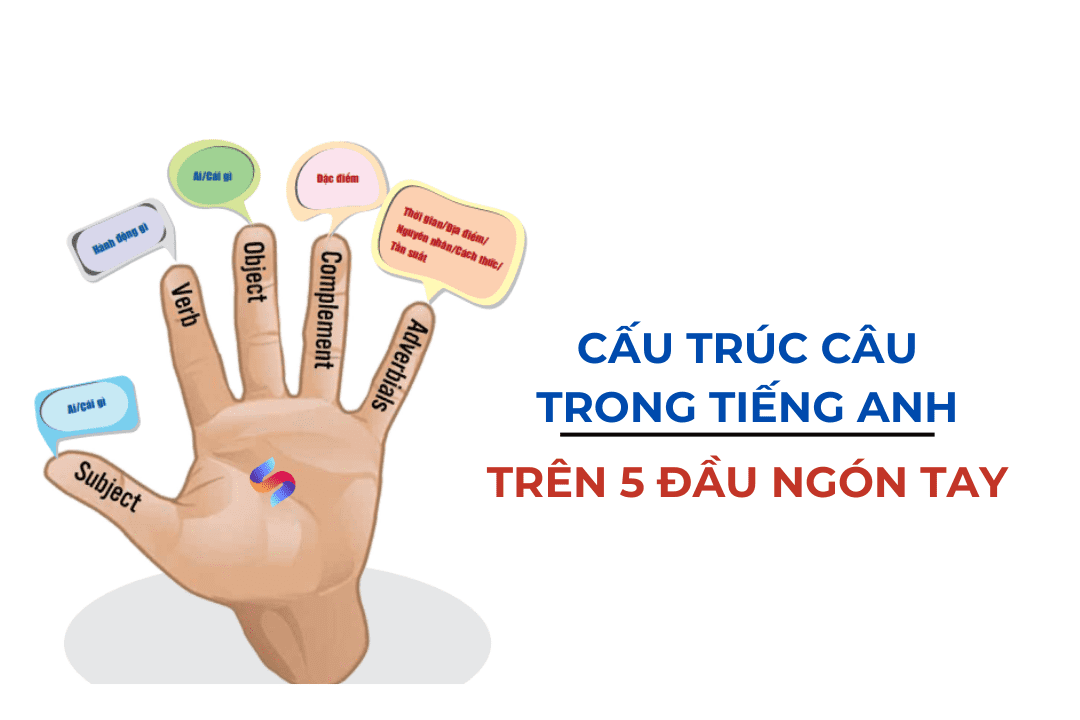
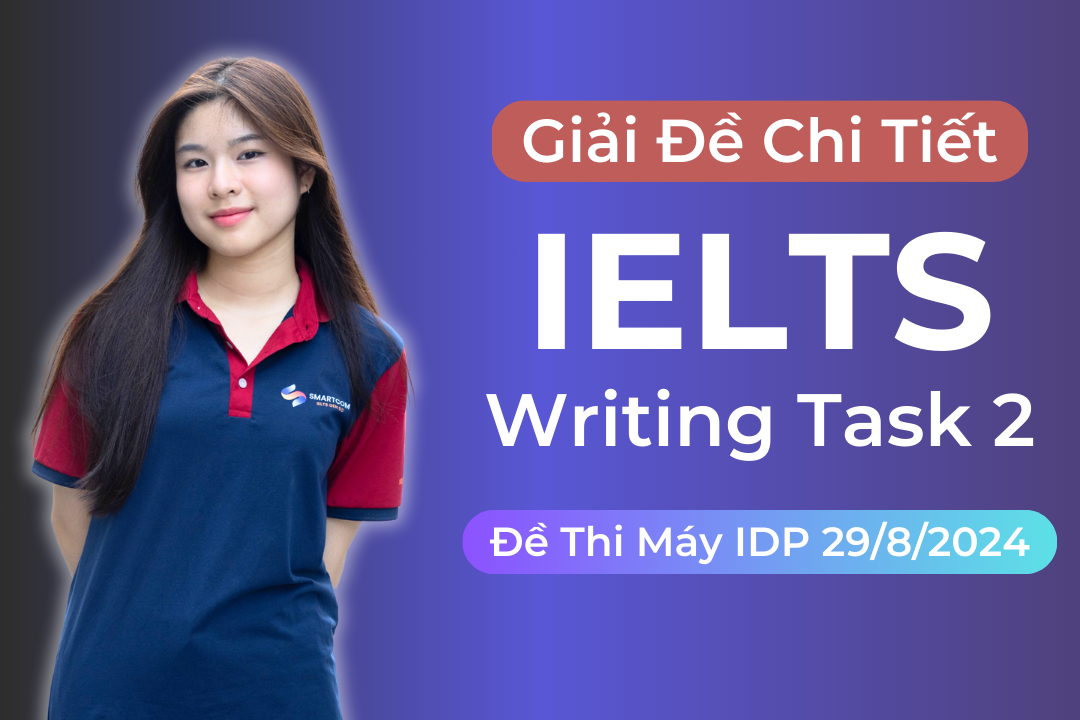
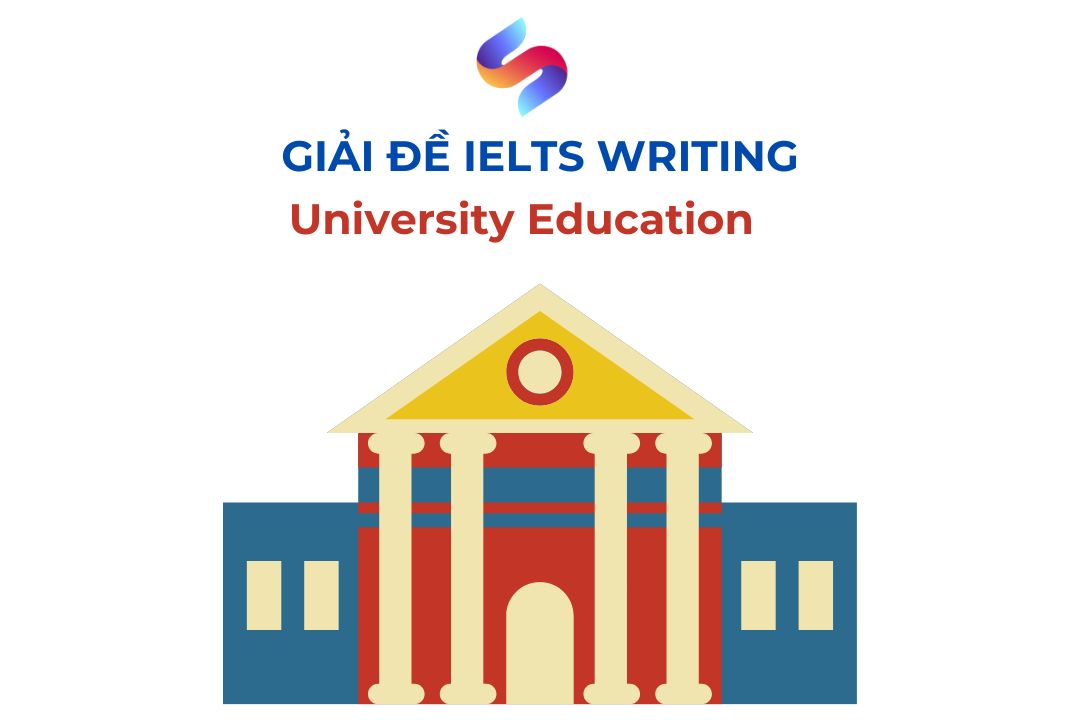
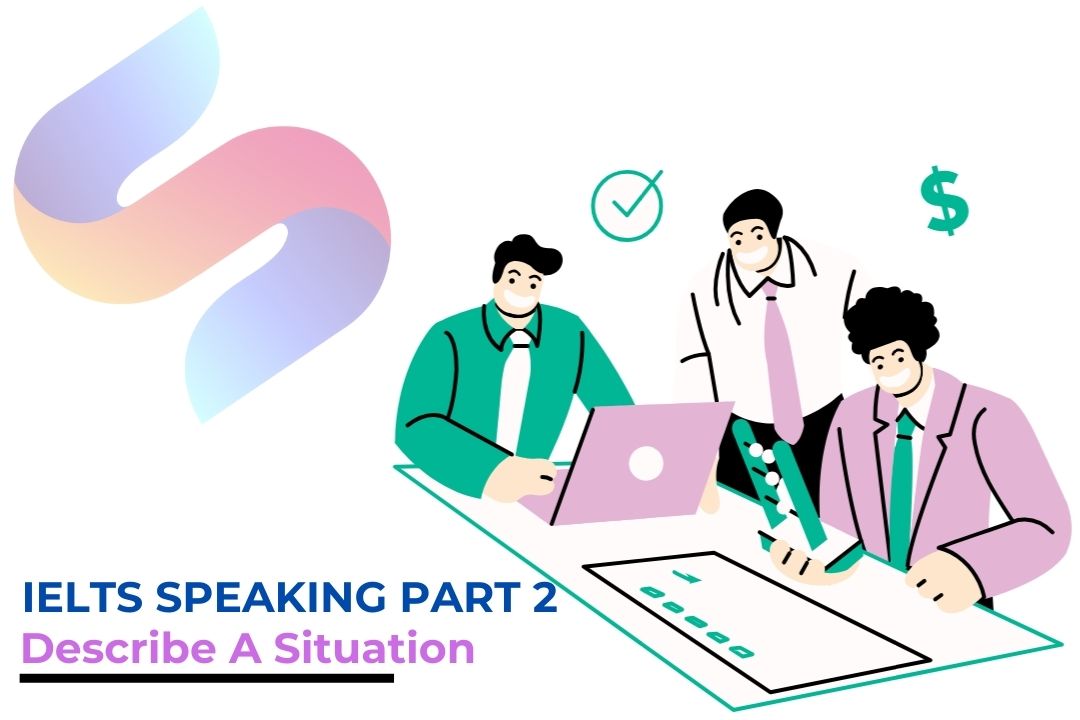
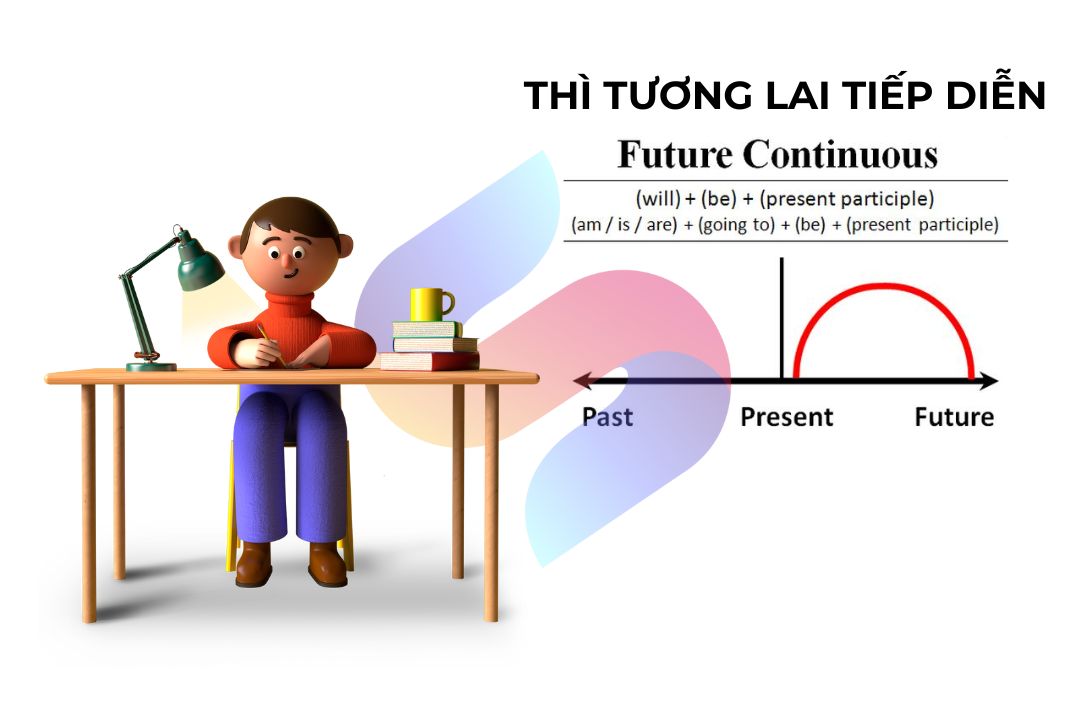
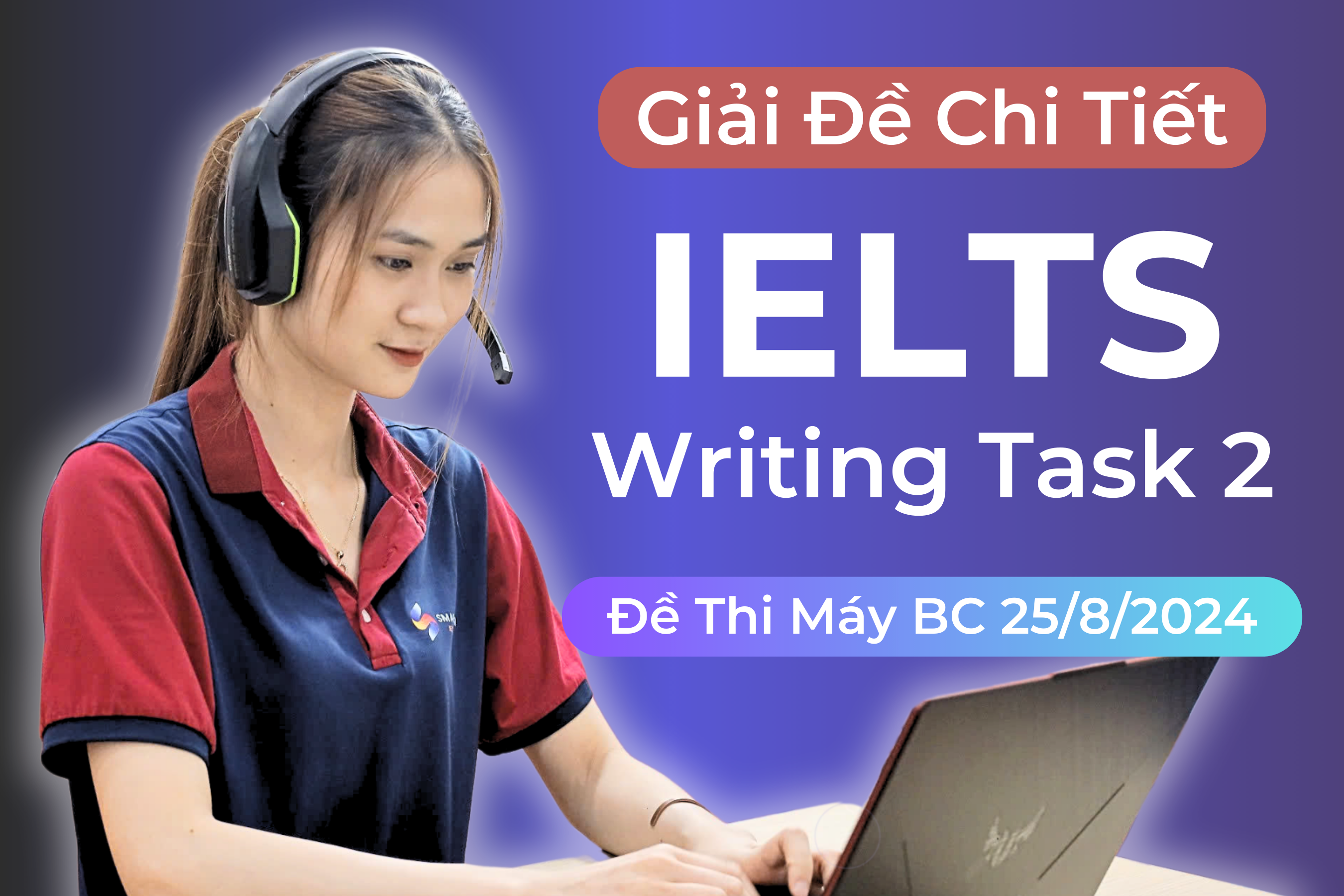
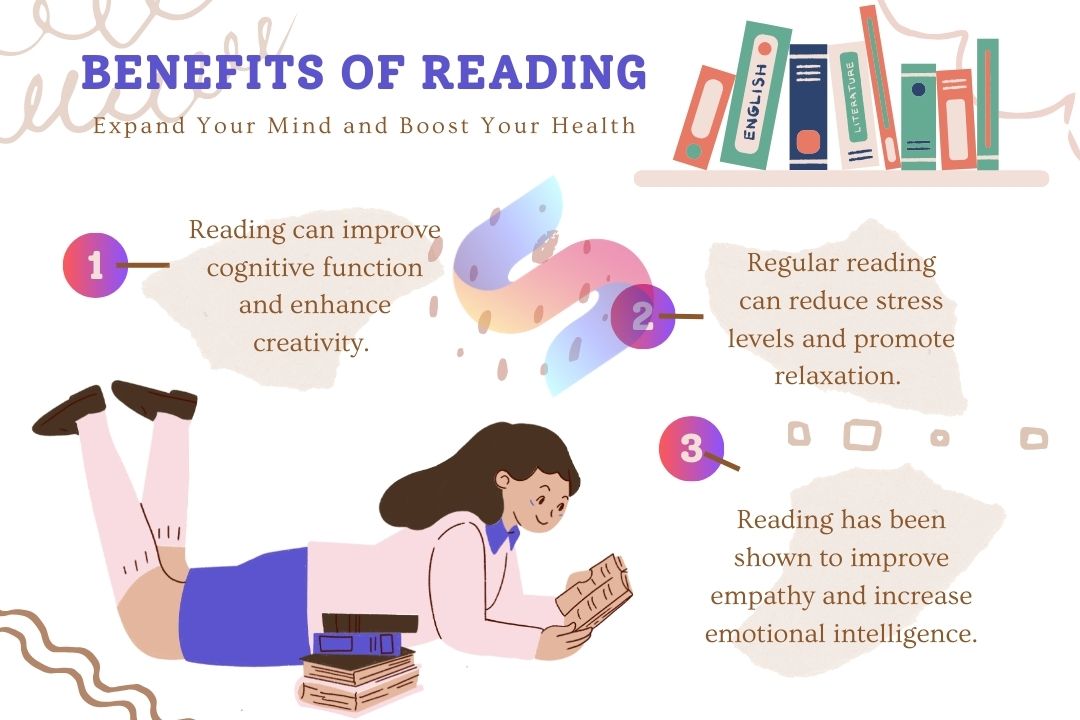
![[Download] Ebook: Giải đề IELTS Writing CAMBRIDGE 19 (PDF)](https://smartcom.vn/blog/wp-content/uploads/2024/10/giai-de-cam-19.jpg)
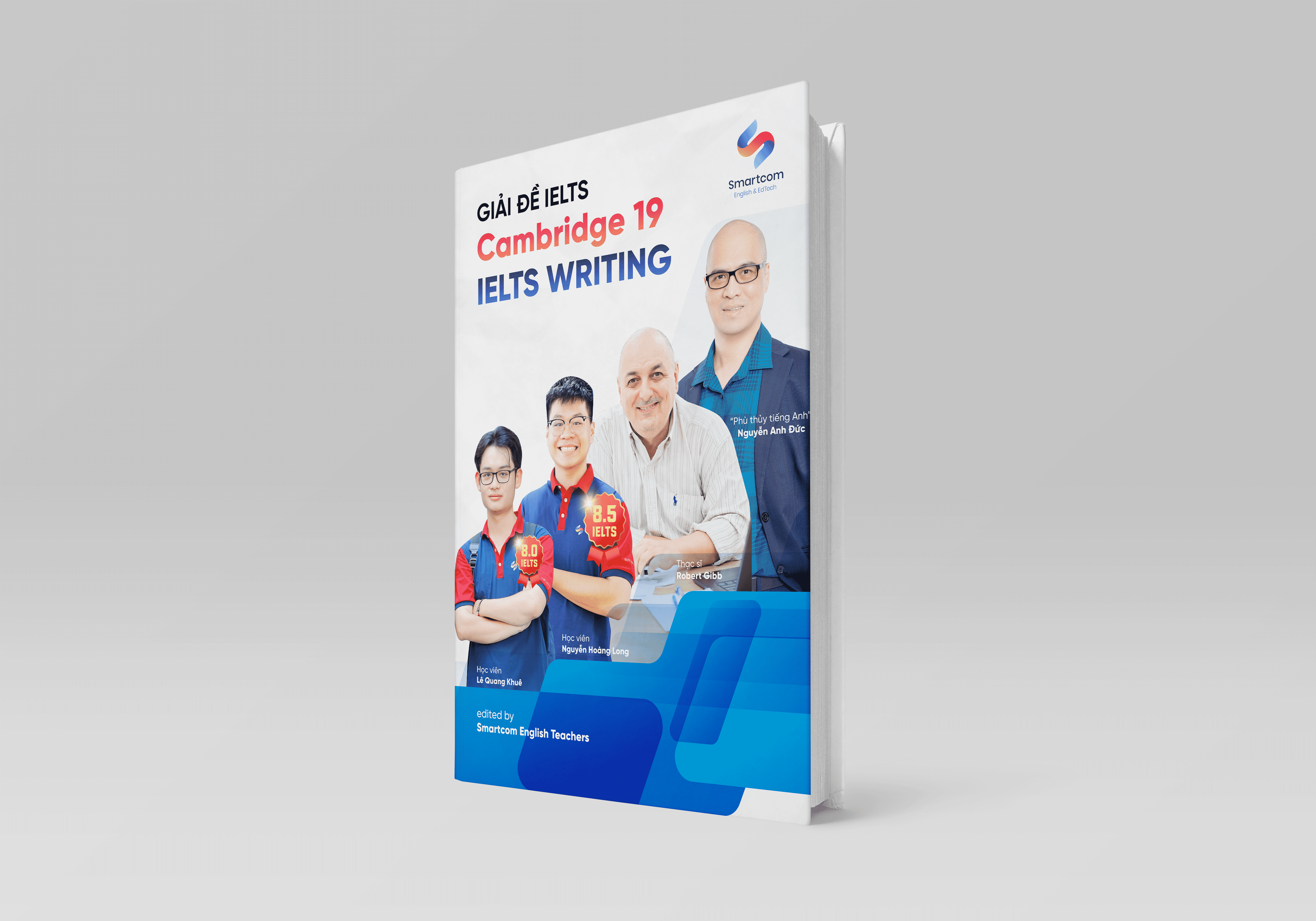
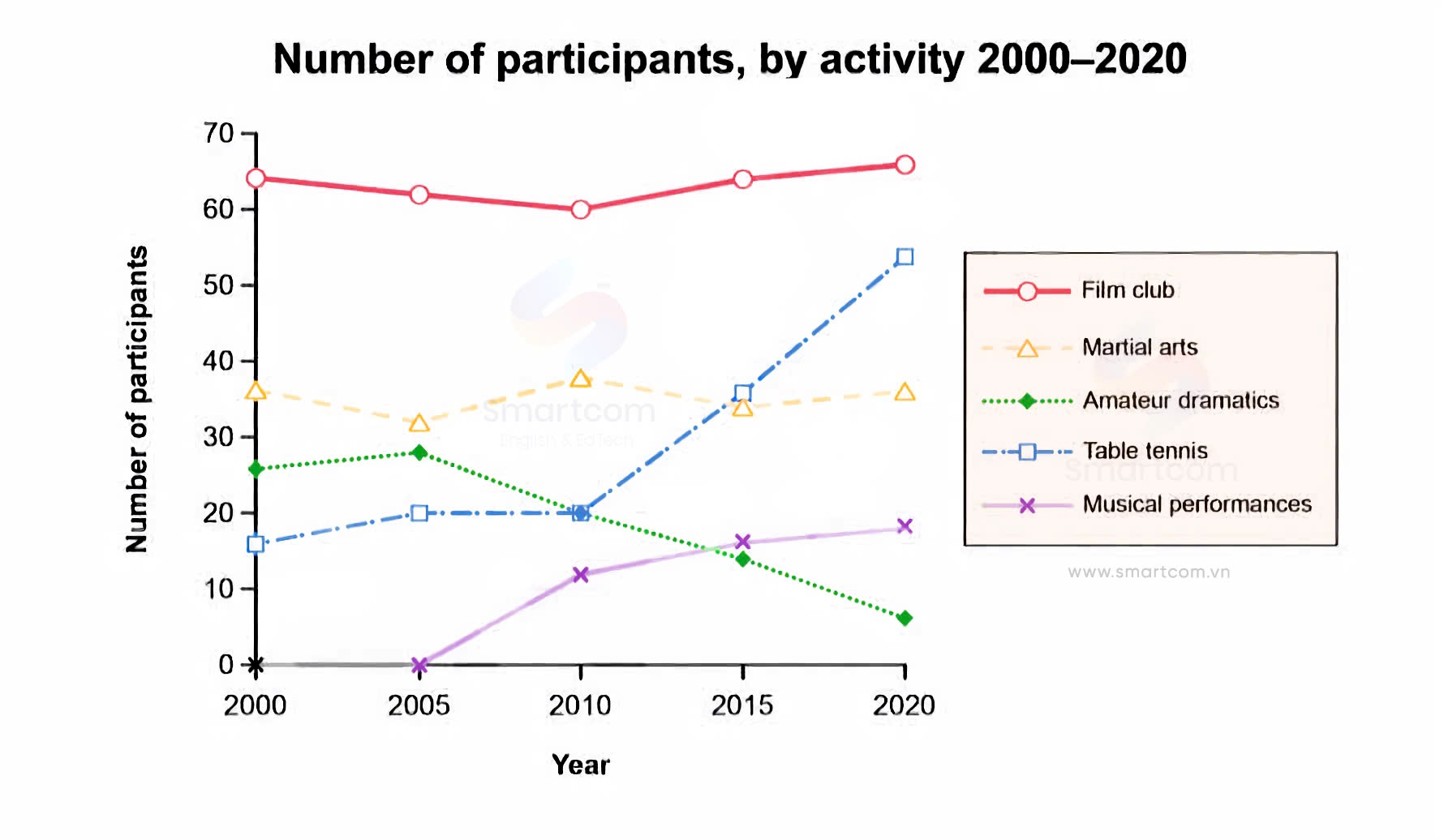



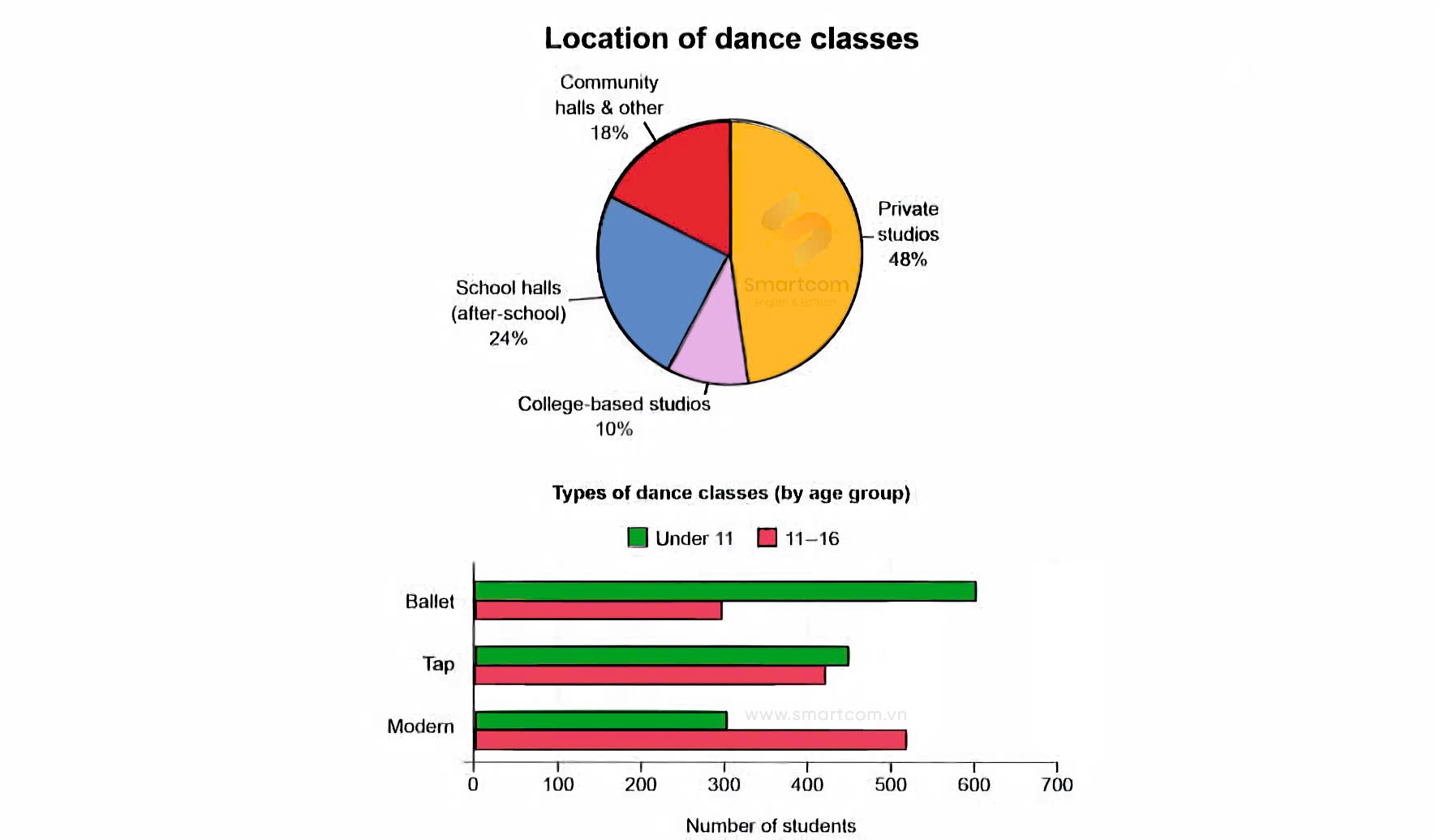
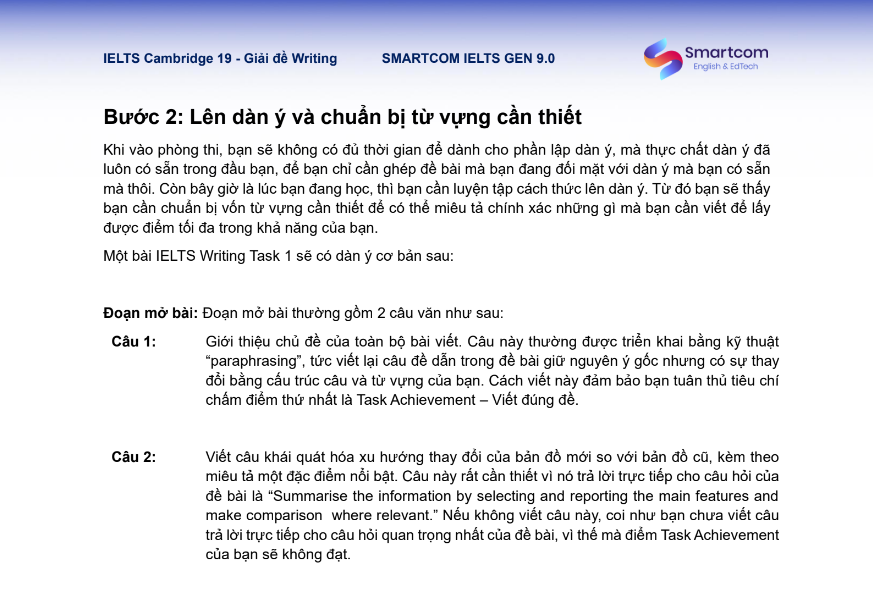
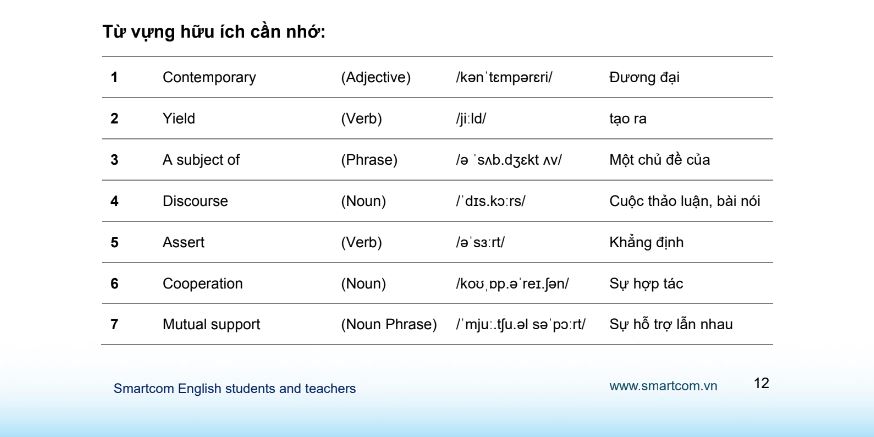
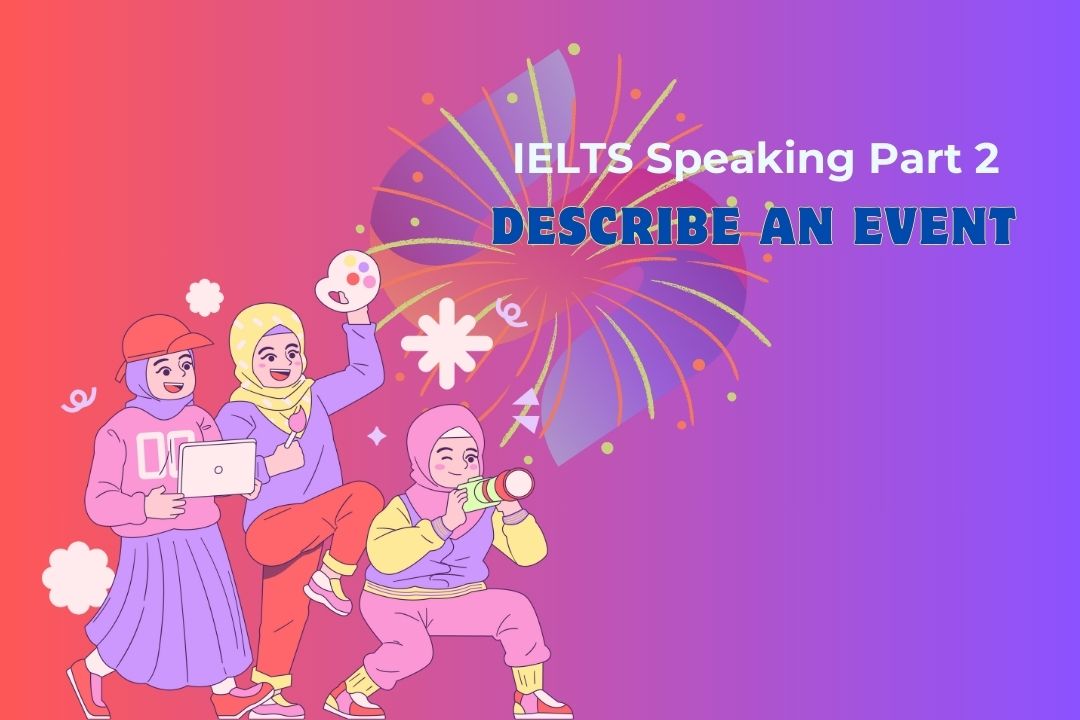
![[Tổng hợp] Bài luận của học viên Lê Trần Diệp Minh 8.0 IELTS (Lớp MD22D1.1)](https://smartcom.vn/blog/wp-content/uploads/2024/10/hoc-vien-diem-cao-ielts-le-tran-diep-minh_optimized.jpg)
![[Tổng hợp] Bài luận của học viên Trung Sơn (7.5 IELTS) lớp MD22D1.1](https://smartcom.vn/blog/wp-content/uploads/2024/10/hoc-vien-diem-cao-ielts.jpg)
